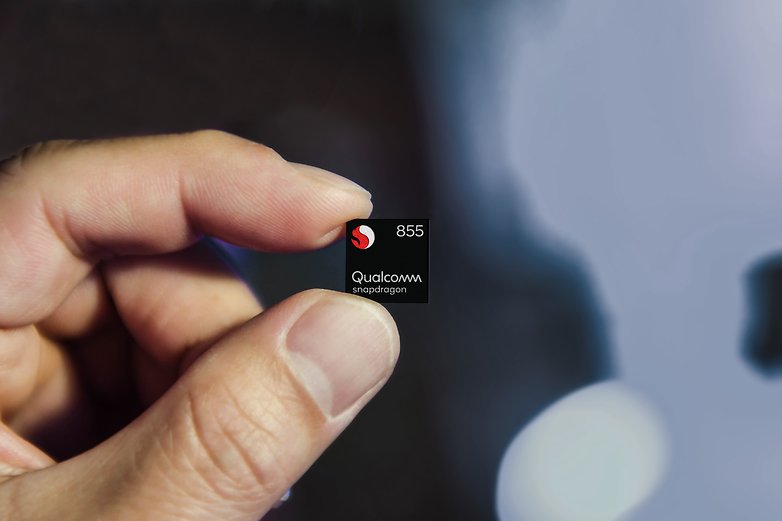Actually we should be upset. Forbes has found, after analysis by two independent experts, that Xiaomi tells its partners whether you use your browser to access porn sites, even when incognito mode is active. I assume, however, that the manufacturer will sell its devices like sliced bread regardless. My experience and current figures speak for that.
The industry service Strategy Analytics reports that the smartphone industry has shrunk by 17 percent. Outlier Xiaomi is not participating in the crisis, and is the only manufacturer not to sell fewer devices than last year. Compared to Samsung, Huawei, and Co., the trend for Xiaomi even looks positive. The manufacturer is grabbing market share from its competitors. Xiaomi is thus securing a larger piece of a diminishing cake.
Ironically, at the same time, the press should be upset that Xiaomi's browser shares confidential information with Chinese web companies such as Alibaba. Two independent experts have found out, according to the online magazine Forbes, that the browser analyzes user behavior and sends data in a poorly encrypted form. Everything is anonymized, but extensive metadata allow quick conclusions to be drawn about the true identity of the user.
There is no such thing as bad publicity
Xiaomi has meanwhile patched the browser and denied several charges of the experts and the journalist. The major damage had already been done, however. In Germany, for example, the click-happy online magazines Heise and Golem have already taken up the issue. Hundreds of thousands now associate "Xiaomi" with "data protection problem".
But some of those readers hadn't even heard of Xiaomi before. They are now potentially even more interested in the brand, especially since the company presents itself issued its counter-communication quite cleverly and openly.
The excitement will only make many people shrug their shoulders anyway, since the current problem was easy to avoid. You can simply use a different browser. Hardly anyone will go around questioning Xiaomi's moral integrity because of it.
The same debate has been attempted for years by privacy-sensitive journalists and experts. OnePlus data scandals, PR failures, and questionable decisions gave have already become memes on Reddit. This manufacturer has thus, in many ways, messed up with its community. Xiaomi should at least make sure not to imitate this.
However, small data protection scandals will not affect Xiaomi in the foreseeable future, as the overall situation in the smartphone sector is hopeless anyway. A loquacious incognito browser won't make the situation any worse today.

Privacy, what is that?
In the meantime, it has become known that at least social networks and some countries create, store, and evaluate or market quite extensive profiles of us. At the same time, however, sympathy for the devil has spread.
- Facebook/Insta/WhatsApp connect us with friends
- Google/Apple/Microsoft/Amazon synchronize our photos/contacts/emails/appointments
- Verizon/Vodafone/O2 somehow transport our data from A to B
- Chipsets and modems from Qualcomm/Apple/Samsung/Huawei/MediaTek somehow take care of calculating and transporting all the information
While we can evade the first three by using alternatives or VPN services, we definitely fail at the last - unless we use a Librem 5. Nicole Färber, the architect of the open-source smartphone, told us already in 2017 in an interview that mainstream smartphones make us "increasingly vulnerable". Not even governmental actors control hardware manufacturers, although they potentially have access to all the keys of our encryption.
The development of the Librem 5, however, is progressing slowly. The self-imposed open-source compulsion in hardware selection is causing a rat tail of problems that is testing the patience of the first buyers and crowdfunding supporters.

What Xiaomi really needs to do
Because Xiaomi purchases most of its chipsets from Qualcomm, the San Diego-based supplier is ultimately responsible for the privacy of Xiaomi users. If there is a privacy issue at the software level - especially if it's just a single, replaceable app - I shrug my shoulders, even though my resignation is of a different nature.
The fact that chipset manufacturers are free to do whatever they want must stop. The secrecy surrounding modem firmware must end and it must be possible to control which device accesses memory and for what purpose. Who is reading this?
At the same time, we must promote open-source computing, which is a counter-project to the obscure commercial solutions of the mainstream. And then maybe one day there will be a smartphone with real incognito mode.
And this is where mainstream vendors like Xiaomi could come in. By working with open hardware projects, they could both reduce their dependence on Qualcomm or MediaTek and significantly increase the trust of their customers (especially those interested in data protection). The budget would be there. Now all that is missing is the will.
Read More Open link https://ift.tt/3c8QcgV
0 Response to "Why data scandals don't hurt smartphone manufacturers"
Posting Komentar